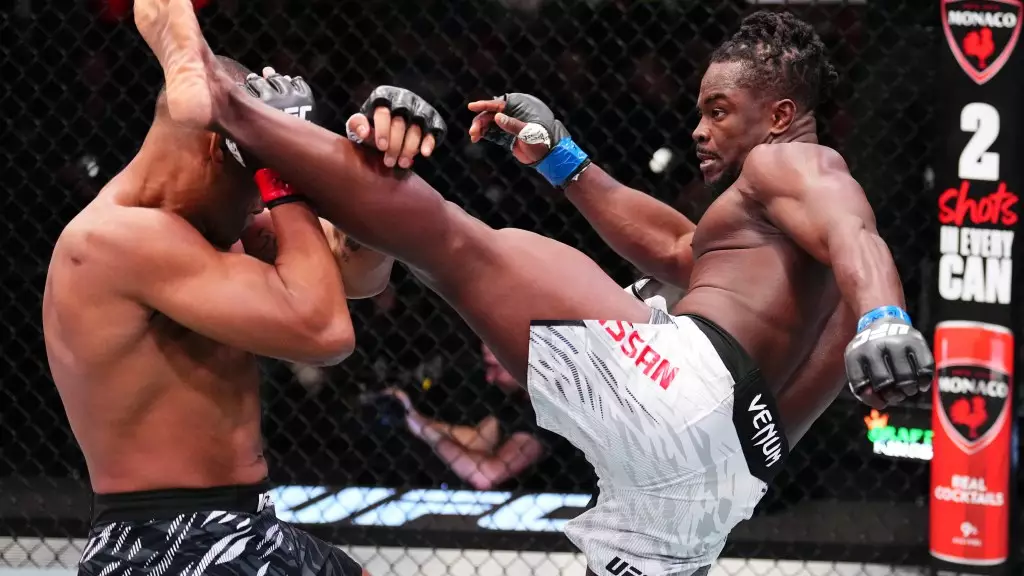Abdul Razak Alhassan, a fighter known for his explosive power and aggressive style, faced a tough setback at UFC Fight Night 249. After engaging in a fierce exchange, Alhassan suffered a brutal knockout at the hands of Cesar Almeida. This incident has not only sparked conversations about the fight itself but has also prompted discussions regarding the unpredictability and perilous nature of mixed martial arts. As Alhassan struggled to regain his composure after the match, the impact of the knockout was not just physical but emotional, stirring a reflection on what it truly means to be a fighter.
The nature of Alhassan’s loss underscores a defining element of combat sports: one moment of overzealousness can lead to a rapid and dramatic downfall. Alhassan entered the bout determined and displayed promising moments of success; he was initiating offense and appearing confident until the moment he charged in for an ill-fated strike. Almeida capitalized perfectly on this lapse, delivering a decisive blow that sent Alhassan crashing to the mat. This sequence has already been dubbed a potential “Knockout of the Year,” showcasing the twilight zone between triumph and defeat that athletes in this arena often navigate.
In the aftermath of the bout, Alhassan was visibly disoriented, raising concerns about his immediate health and safety. The UFC’s protocols for post-fight checks came into action, reflecting the seriousness of injuries sustained during the fights. Alhassan managed to exit the cage under his own power, yet his emotional vulnerability was starkly evident in the Instagram post he released later. His words, expressing sorrow for his performance and an acknowledgment of his mistake—“I got greedy and I got caught”—speak volumes about the mental strain fighters endure. The competitive nature of mixed martial arts often leads individuals to make split-second decisions that can irrevocably alter their careers.
Reflecting on a Fighter’s Journey
As Alhassan navigates this challenging phase, one can’t help but examine his broader career trajectory. Since entering the UFC in 2016, he has showcased his striking prowess in numerous bouts, with a notable number of his fights ending in knockouts. However, with this recent defeat marking his third consecutive loss, questions about his future in the promotion loom. Athletes often face crossroads, and how Alhassan responds to this pivotal moment may define his legacy in the sport. Whether he will reevaluate his strategies or push onward with renewed vigor remains to be seen, but his journey highlights the fine line that every fighter walks between glory and despair.
As mixed martial arts continues to evolve, the implications of Alhassan’s experience resonate with upcoming fighters and seasoned veterans alike. Ath

